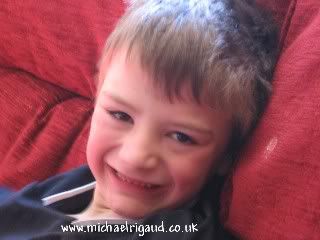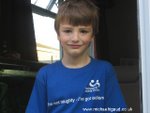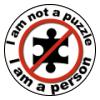Hope over blood test for autism
Scientists in the US say they are getting closer to developing a blood test for autism.
The disorder is generally diagnosed through a series of behavioural characteristics, when a child reaches two-years-old at the earliest .
But the UC Davis MIND Institute in California has identified key proteins and cells within blood which could be used to diagnose newborns.
However, it could be another 10 years before the test would be available.
More than 500,000 people in the UK are thought to be affected by autism spectrum disorders, which limit their ability to develop friendships and make it hard to understand other people's emotional feelings.
The incidence of the condition appears to have risen sharply over the last 30 years. Nobody knows why this is and it is possible that more cases are simply being diagnosed than in the past.
Rising
Lead researcher David Amaral said the US test would represent a real breakthrough, allowing people with autism to receive treatment and support much earlier.
"Finding a sensitive and accurate biological marker for autism that can be revealed by a simple blood test would have enormous implications for diagnosing, treating and understanding more about the underlying causes of autism.
"Not being able to detect autism until a child is close to three-years-old eliminates a valuable window of treatment opportunity during the first few years of life when the brain is undergoing tremendous development."
Characteristics
In a study of 105 children - 70 with autism, and 35 without - the researchers found those with autism were more likely to have a certain set of proteins, small molecules and cells, including natural killer cells.
They are now conducting a full evaluation of the data, which could take months, to help confirm the initial findings.
The team would then need to see if the test is accurate on newborns, meaning it will be another five to ten years before any definitive diagnostic test would be available.
Richard Mills, director of research at the National Autistic Society, said the research may "throw light" on the causes of autism.
And he added: "We particularly welcome any credible development in early detection as early intervention is the key to the development of a person with autism.
"This confirms that some underlying conditions associated with autism do have an organic basis, which can be detected at birth and which are responsive to biomedical intervention."
Saturday, May 07, 2005
Subscribe to:
Post Comments (Atom)





No comments:
Post a Comment